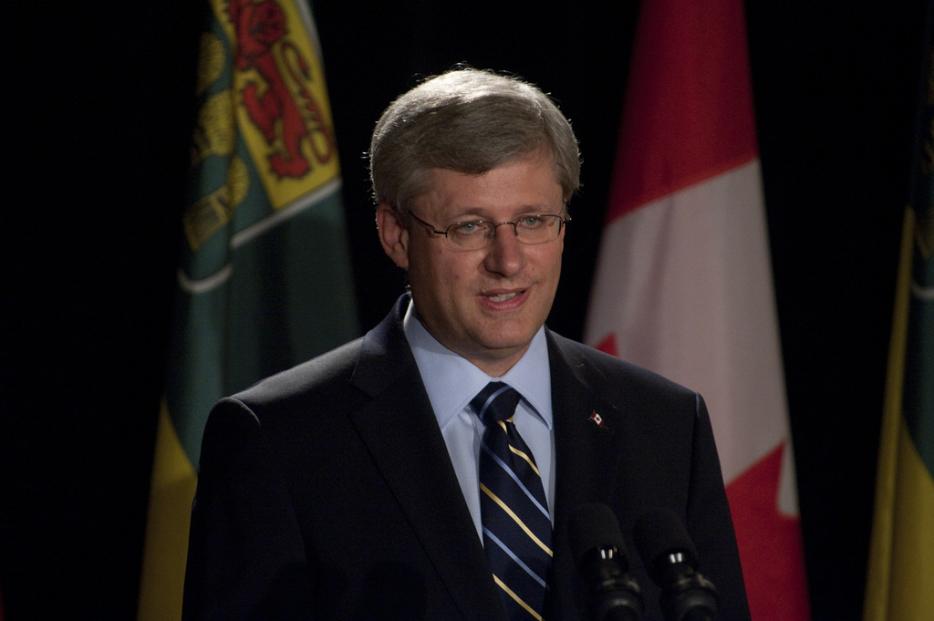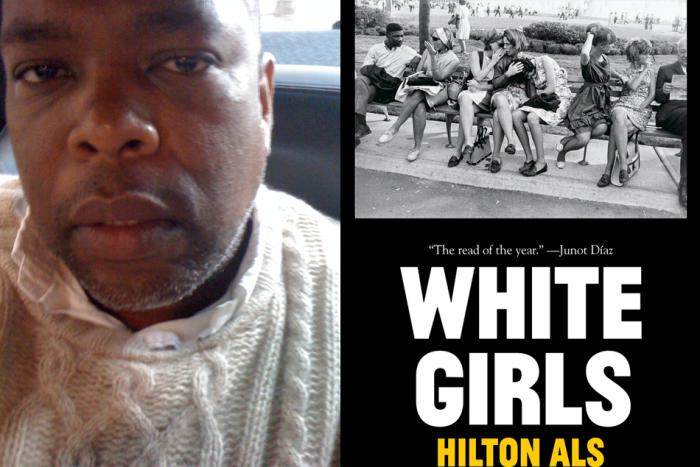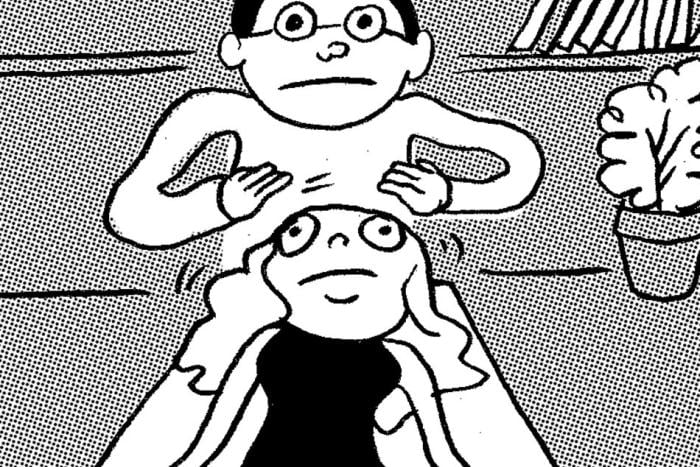“At every point since he became Prime Minister,” says Paul Wells, political editor and columnist at Maclean’s, “it’s been easy to find people in Ottawa who will calmly explain to you that this Harper business is almost done.”
The Mike Duffy scandal metastasizing around him, and Justin Trudeau’s Liberals surging in the polls, talk that it will soon be curtains for Stephen Harper is likely more common now than ever. Except if one thing has proved true about Harper, as Wells points out, such predictions have—until now anyway—always proved premature.
“After the 2004 election when [Harper] cut Martin to a minority, they figured it was because Martin hadn’t found his sea legs yet, and he would make short work of Harper next time. After the 2006 election, well, Harper barely won. After the 2008 election, he had only won another minority and therefore the Conservative government was going to eject him. Now it’s a common theme, I see it in the newspapers most weeks, someone saying, ‘Well, Harper’s washed up and he’s going to quit soon.’ He will one day, but so far the detractors have been wrong.”
Wells has been covering Ottawa since 1994, when he was a staff writer for the Montreal Gazette, and frequent contributor to Saturday Night. In 2003 he moved to Maclean’s, where in addition to his column for the magazine he writes a blog that often strays beyond national politics to survey technology (particularly the travails of RIM/Blackberry), physics, jazz, and classical music. He is also the author of Right Side Up: The Fall of Paul Martin and the Rise of Stephen Harper's New Conservatism (2006).
Last month Wells published what is arguably the definitive account of Harper’s rise and reign to this point, The Longer I’m Prime Minister. Few other journalists have given us as insightful, eloquent, tough-minded, and plausible an account for Harper’s recent domination of Canadian politics—love or hate the Prime Minister, Wells demonstrates the necessity of understanding Harper from the inside.
Hazlitt spoke with Wells during a pre-publication visit to Toronto, and then caught up with him again last week as the Nigel Wright-Mike Duffy imbroglio inched ever closer to the prime minister himself, presenting Harper with the greatest challenge to his leadership since the 2008 coalition crisis and a controversial prorogation came within a hair’s breadth of unseating him.
--
What do you make of the information released recently by the RCMP in its ITO? There is the bit where Nigel Wright told his colleagues dealing with the Duffy problem, “We’re good to go from the PM”—in reference presumably to the illegal payment he was about to make. Do you think this confirms that Harper knew about the payment to Duffy?
The ITO is too dense for me to parse economically. I’ll note only that, by my reading, every time Wright refers to authorization from the PM, it’s before Wright says he had decided to pay Duffy out of his own pocket. To me it’s hard to read the RCMP document in any way that suggests Harper knew what Wright was up to.
What’s more interesting is what happens after Wright’s actions are known. Harper has his staff defend Wright for four days. That’s a long time in a 24-hour news environment. And for six months afterward, Harper now says, he did not ever once inquire of Senators Gerstein, Stewart-Olsen or LeBreton what the hell had happened. This strains credulity.
How badly is the scandal overshadowing what should prove to be one of Harper's lasting legacies—the landmark free trade agreement with the European Union? Is it premature to speculate how damaging the Duffy affair will prove to Harper in the 2015 election?
A lot of these things depend on what time cycle you’re looking at. There weren’t a lot of headlines on trade with Europe last week. In 20 years, there may be more. Canada-US trade was not what most people wanted to talk about when they discussed Brian Mulroney in 1992. In 2013 it’s a key ingredient to Mulroney’s relative redemption.
What effect will all this have on Harper’s future? He once seemed on the ropes over Afghan detainees, F-35 pricing, Bev Oda’s doctored departmental memo, and a lot more. I’m not being glib when I say I’ve read too many premature autopsies on the Harper years to have any taste in writing another. More broadly, I’ve written a book of history and I’m reluctant to peddle cheap predictions. All I know is that this Senate business is real trouble for Harper.
After seven years as Prime Minister are you still surprised that so many people, especially his detractors, seem to underestimate Stephen Harper? Or misread him?
I’m beginning to think that part of political success is a tendency to upset your detractors so much that they misjudge you. If your opponents can draw a bead on you, then you’re finished. I covered Jean Chrétien for close to a decade but for five of those years I was at the National Post. Most National Post readers were very upset that Chrétien was prime minister. They allowed themselves to believe that he was an idiot. They allowed themselves to believe that he was a backwoodsman that didn’t understand the sophisticated real world. So it was pretty easy for him to run laps around that kind of audience.
It’s the same with Harper. If you think he’s going to do the narrow ideological thing, he doesn’t do that. If you think he’s going to allow himself to be led by the nose by religious conservatives, he’ll surprise you.
In the prologue to The Longer I’m Prime Minister you write, “readers who cannot bring themselves to believe he is elected Prime Minister of this country not only misunderstand Stephen Harper, they also misunderstand Canada.” Could you elaborate on that?
The theme of some of the early Harper books was that he was an essentially manufactured product of the University of Calgary’s political science department—that people like Tom Flanagan and Ted Morton were out to destroy a Canadian consensus. One of my arguments is that there was no damn consensus. There was a diverse polity that was constructed almost by accident, one that the Liberals happened to win almost all the time. Even though there are other strong strains of political belief in the country, Quebec nationalism and Prairie populism are the two big ones. Liberals would split that opposition and run up in the centre again and again and again.
But for all the time that Pierre Trudeau was Prime Minister, and for all the time that Jean Chrétien was Prime Minister, there were millions of Canadians who couldn’t stomach it. They’re as Canadian as the next guy and Harper comes from that broad cultural conservatism. He’s not a freak or a loner. Then there’s another more recent argument in the book The Big Shift by John Ibbitson and Darrell Bricker, that recent demographic changes have erased the old Canada and created a new Conservative-friendly Canada—I think that’s badly overstated too. I don’t think Canada has changed starkly in the last ten years in a way that explains Stephen Harper. There were always Conservatives, there will always be Liberals, and Harper simply has maneuvered more skillfully in that playing field than his opponents.
But one reason he’s able to win is that he had broad, strong, cultural support from good, honest Canadians who simply prefer him to the alternative. Those Canadians are outnumbered by the number of Canadians who vote against the Conservatives. But there are several million of them, and most of them have now voted Conservative four, five, six, seven elections in a row. The least we can do for those people is understand who they are, where they live, and why they vote that way.
You’ve interviewed Harper formally, in microphones-on situations, and you’ve chatted with him socially. How much does your impression of Harper contradict the perception that so many Canadians have of him through the media.
One of the big things I’m trying to do in The Longer I’m Prime Minister is to avoid caricature, to avoid one-line arguments about the guy. There have been other books that say “he’s a control freak” or “he’s a religious zealot” or “he has a clear idea about Quebec’s place in Canada that guides everything he does in politics.” He’s a complex enough guy, that’s just not the case. If my argument were he’s a control freak, there’s a million counter-examples. If I say he’s a timid incrementalist, there’s examples where he’s been bold. And if I say he’s a loner or some kind of mutant brain in a jar, there are examples of him being generous, thoughtful, funny, and intimate that would confound that general impression.
You’ve already written one book about Stephen Harper’s rise of to power. Do you recall your earliest impressions of him?
Stephen Harper always stood out amongst the Reform MPs who were first elected. There were 50 or more of them who were elected in 1993. I came to Ottawa about a year later. He was relatively urbane, although his suits were cheap. He was unusually comfortable in French, he was very comfortable talking about political ideas and strategy with reporters, whereas the Reform Party in general made a virtue of a sort of naïve view of things. “This is what the people want, why can’t the people just have the type of government they’ve been asking for?”
Harper would never talk at that level, he would always talk at a more elaborate level. He was the least physically impressive or imposing guy you could ever imagine. More than once I would find myself having stood next to Harper for several minutes without noticing he was there. He’s learned since then to fill a room like a leader does. But he had to learn because you’d barely pay any attention to him when he was a young politician.
Did you have any reason to expect that he’d end up sticking around as long as he has, or dominating Canadian politics?
Not only could I not have imagined a Prime Minister Stephen Harper in 1994, it was very hard to imagine a Prime Minister Stephen Harper in the summer of 2005, six months before he got elected. I attended a dinner during the Calgary Stampede in 2005, about ten people around the table, most of them Conservatives lamenting that Harper had blown his one shot at power, and now he was going to lose the next election and the party would have to look around for a new leader so soon after it had been founded. Stephen deserves a chance to try again and we’ll have to find a leader afterwards.
That was six months before he became Prime Minister and two of the people at that table are now ministers in his cabinet. They were as surprised as anyone when he managed to win. He dominates our politics so thoroughly now that it’s genuinely hard to remember how tentative his grasp on power was when he got elected. The Conservatives in 2006 got elected with a smaller share of the total number of MPs of any government since Confederation. The government he had in 2006 had the smallest number of MPs of any government, had 30 fewer seats than Joe Clark had in 1979, and Joe Clark only lasted nine months. They were convinced they would not last a year. They were convinced of it, and they had to make the most they could of that fleeting shot at power so that they could make the case to return to power somewhere down the road. That was the original plan.
Then it’s doubly astonishing given what happened in 2008, surviving the prospect of a Liberal-NDP coalition with the explicit backing of the Bloc Quebecois. There was widespread speculation that Harper was effectively finished, that he would have to resign as the Conservative leader should they lose the government in a non-confidence vote. The asked the Governor General to prorogue parliament and came out of it reinvigorated. Did he merely luck out from what seemed like a hastily put together coalition, or was it a case of making his own luck?
It is true that the coalition could hardly have launched a clumsier revolt. They hadn’t prepared public opinion. They made no attempt in the war over public opinion that followed to make a sophisticated play for the opinions of Canadians. They restricted themselves to a sort of freshman civics course conception of Parliament, which holds that any mathematical majority of MPs can take power and that the opinion of Canadians has nothing to do with it. Or they assumed that Canadians preferred their coalition to the Harper government.
For a few days it looked like they were right. This was a special kind of crisis for Stephen Harper, the kind of thing he’d always feared. It’s like the rats in Room 101 for Winston Smith in 1984. He had always known that in a minority parliament, with the Conservatives at the right end of the spectrum, that the median MP would be a Liberal. That is, if parliament ever settled to its ground state as we would say in physics, that the natural prime minister for that parliament was a Liberal. And that he had to make sure the opposition never united against him. And then they did. Precisely because he had seen that danger for a few days he was dejected, and figured he was ruined. Then he saw the picture of Stephane Dion, Jack Layton, and Gilles Duceppe shaking hands over the deal—and the presence of Duceppe gave him the wedge that he needed to blow that whole thing up. But that is the big crisis. I believe that what he is going through now, although it is a more protracted mess, is less significant than that crazy week where it looked like he’d lost everything because he’d allowed the opposition to unite.
Did he learn anything from the experience? Is it evident in the way he’s governed since?
The amazing thing is the series of polls that came out starting about a week into that mess, which showed that quite a strong plurality of Canadian preferred a Harper government, even one that had essentially disappointed them with his economic policies during the economic crisis, they preferred a Harper government to a coalition. It was essentially the first time he knew that the people of Canada had his back in a straight choice between his government and a realistic alternative possibility. It was the first time he actually felt—not all Canadians, never all Canadians—but he felt like he had enough Canadians behind him. That became the strategy for the 2011 election.
Starting about a week after the coalition crisis looks like it’s passed, Harper starts telling interviewers, “Well, you know the next election is going to be a choice between a Conservative majority or an Opposition coalition.” He repeated that line for two years before the 2011 election. He sent out other cabinet ministers to repeat that line. He could not have made it clearer how he was going to fight the 2011 election. And the Opposition preferred to assume that that argument would not be compelling for Canadians, or that he wouldn’t follow through, or that the mention of a Conservative majority would itself be so scary that Canadians would rush to embrace a coalition or something.
So again, if my capsule argument about Harper is that he’s unpredictable, that is a big rebuttal—the fact that for two years he told everyone. It’s like Babe Ruth pointing to the spot over the wall where he’s going to send the next pitch and then delivering. One of the weirdest things about Harper is over that extended period in the middle of his time as Prime Minister, when he tells everyone how he’s going to win the next election and he wins it just the way he said he would. Michael Ignatieff was helpless.
[pagebreak]
Aside from winning that majority government in 2011, what would you say have been the high points of his tenure as Prime Minister, or what might his legacy be?
The Stephen Harper who is Prime Minister today is the same guy who wrote, with several colleagues, the Firewall Letter in 2001, which said that in the face of a predatory federal government launching all of its crazy plans over provincial objections, that Premier Ralph Klein needed to build a firewall around Alberta and make sure the federal government couldn’t do crazy things if Alberta didn’t want them. All of his opponents have used that Firewall Letter against Stephen Harper. To some extent it hasn’t been an effective weapon against him because he has never stopped believing the things in that letter.
But there’s two ways to avoid a predatory federal government interfering in provincial jurisdictions. You can sit in the province and build firewalls, or you can go to Ottawa and disarm the federal government. Harper’s done the latter, and he’s done it by substantially reducing federal revenues, through the GST cut and a few other measures, and by increasing spending on things that are solidly in federal jurisdiction and have nothing to do with social policy or education or health, which are provincial jurisdiction. So military spending, jails, military procurement, things like that are where the big money is going now.
And so the boutique social programs, the complicated federal interventions in healthcare—all the stuff that used to drive Ralph Klein crazy—the federal government is not doing that now. At a minimum I’m agnostic about whether that’s good for the country, but it’s absolutely what Stephen Harper came to do, and he has accomplished it. Revenues as a proportion of the GDP are at the lowest point since the early 1960s, federal program spending is on the decline, and Harper has done it in ways that will be very difficult for future governments to reverse. Tom Mulcair is not going to increase the GST by another two points. Justin Trudeau already said he accepts the levels of taxation set by Stephen Harper. The levels of taxation set by Stephen Harper are so low that they seriously limit the ability of any future federal government to do interesting things. That’s a lasting legacy of Stephen Harper, and it’s up to Canadians to decide whether it’s a triumph or a shipwreck that he’s left.
Unquestionably Harper has had a very difficult year, what with the senate expense scandal, Mike Duffy, his highly regarded chief-of-staff resigning in disgrace and now the subject of an RCMP investigation—arguably he is now at the nadir of administration. His poll numbers have flagged, though not exactly cratered out, and several cabinet ministers have either retired or announced that they won’t be running in the next election. Given the frequency with which pundits and Ottawa insiders have counted out Stephen Harper in the past, how do you see his prospects for re-election?
He could very well lose. It’s possible he could throw in the towel before the next election, although I actually think that ship has sailed. I think an orderly transition of leadership in the Conservative party would be very difficult to pull off now. Justin Trudeau has spent most of the past year seeming to be a genuine wild card in Canadian politics. Someone who Canadians understand that may not be the most experienced, not the most eloquent, not the most highly educated person, but he is an interesting alternative to Harper as a political leader. For all those reasons Harper could lose.
I’ve just sat through too many lunches in Ottawa in 2005, and 6, and 8, and 10, and 11, and 12, where people kind of grandly sat back and said, “Well, that’s the end of that guy, he never understood the country in the first place.” I’ve sat through too many of those conversations to start peddling that kind of line now. Harper presides over a relatively healthy national economy, which is a huge advantage for any incumbent Prime Minister. It’s a trend of 35 years standing that the Conservative party in this country tend to poll poorly between elections and then to do better on election day. The trend for the Liberal party is as robust in the opposite direction. The worst polling months of John Turner’s career as the Liberal leader were the month he lost the 1984 election, and the month he lost the 1988 election. As long as Canadians aren’t voting they like Liberals fine. But when it comes time to vote, the Liberal vote melts like snow. Even when they were winning that was the case.
So for all these reasons, and the fact that I think a lot of Canadians hearts are with Justin Trudeau but their heads are with Tom Mulcair—that sets up the opportunity for yet another ruinous split in the opposition vote. I am far from counting on Stephen Harper’s chances in 2015.
What is it then about Stephen Harper that, it’s so frequently said, makes him the only person who can beat Stephen Harper?
This is such a cliché in Canadian political coverage that I am a little sad to endorse it in Harper’s case, the idea that governments defeat themselves. I don’t think governments necessarily only defeat themselves. I think that a strong alternative to a government is needed before Canadians will change their vote. That helps explain why Dalton McGuinty didn’t win the 1999 election in Ontario but did in 2003—he simply learned how to be a better politician in the intervening four years.
But the fact is, with Harper…. So the coalition crisis comes about because Harper puts in this stupid measure about party funding in an economic update that had nothing to do with it, so he triggers the crisis. The Senate scandal is the pure product of three of the first senators he ever appointed as Prime Minister. His first round of appointments included Patrick Brazeau, Mike Duffy, and Pam Wallin. In order, those were the three senators who imploded. This habit of trying to find a monetary solution to a problem, trying to find somewhere you can throw money so that a political problem goes away, is one with long history in Harper’s style as Prime Minister and as Conservative leader. They paid off inconvenient candidates before.
That helps explain why it makes sense for a smart guy like Nigel Wright to say, “Mike Duffy is a problem, I’ll just write a cheque and make the Mike Duffy problem go away.” Harper’s tight-lipped communication style, and combative political style, ensures that a lot of people who’ve never voted Conservative are sure not going to vote Conservative now.
I do think that whenever it ends for Harper, he’s going to wind up looking like the caricature of Harper that people have been peddling all along. He will be alone, and bitter, and to some extent in denial about what’s happened to him. The only difference between me and a lot of commentators is I’ve never thought that that end is imminent. I continue to think that is at some hard to determine point in the future.






